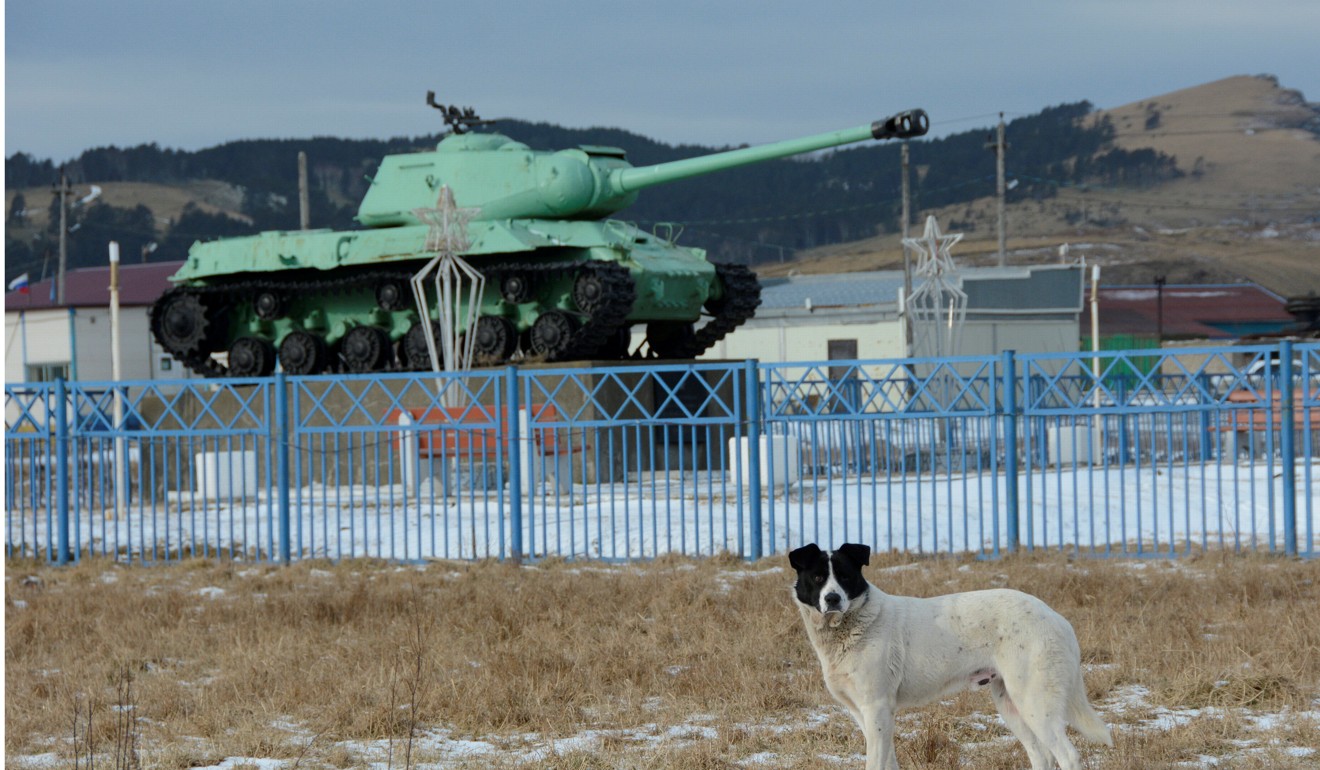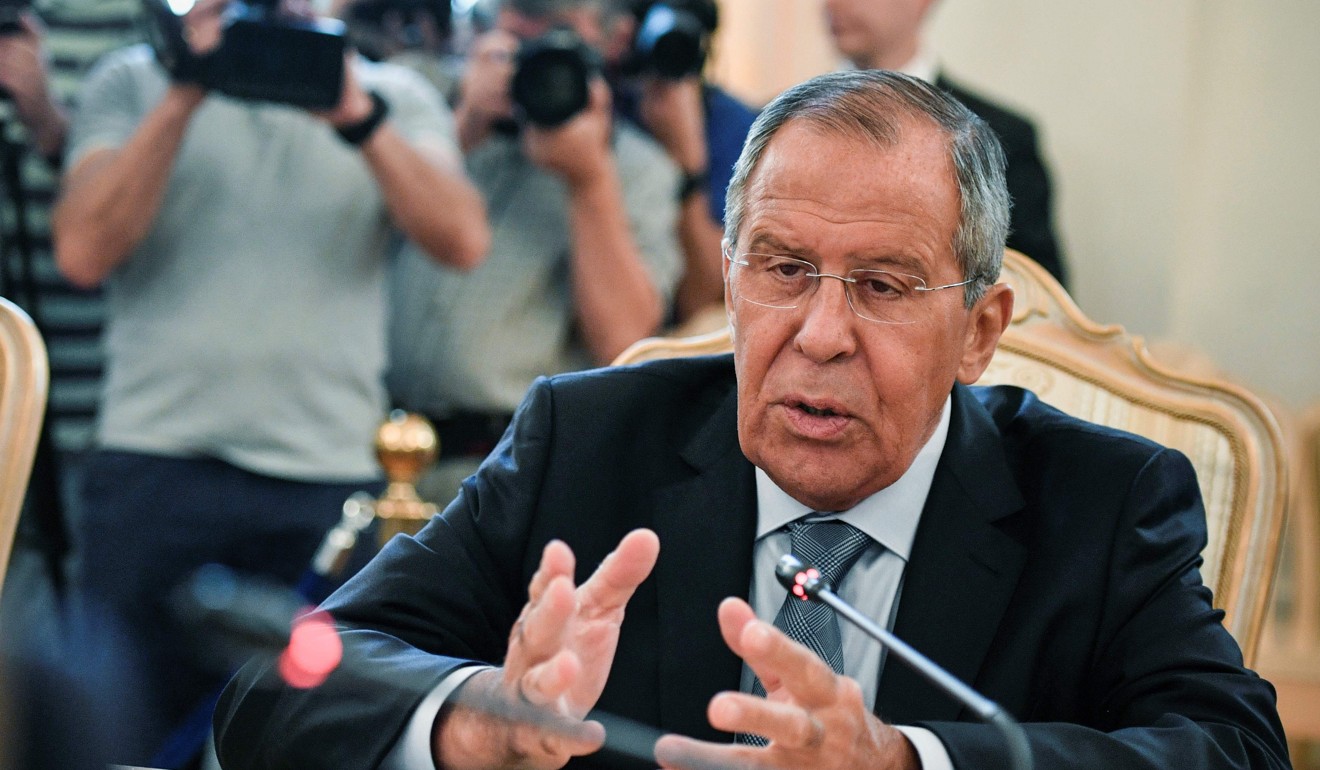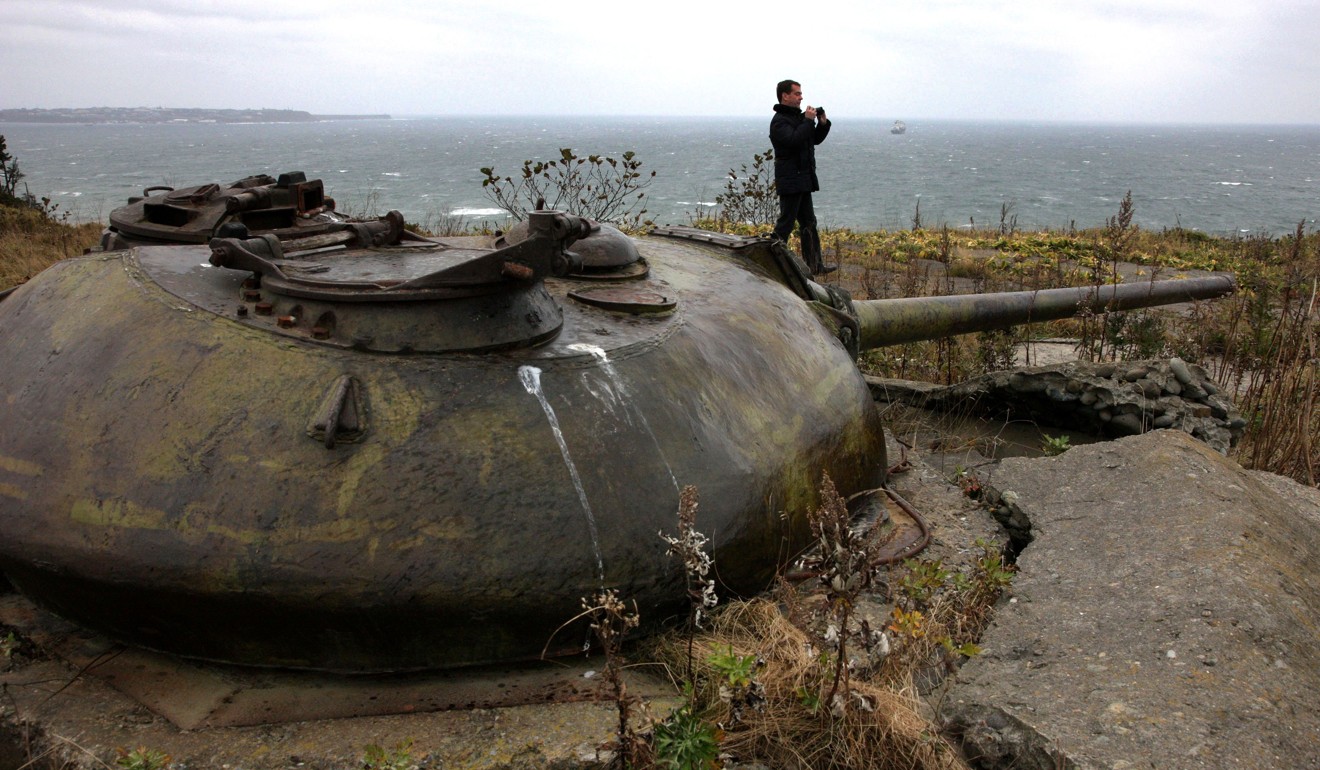
'Not partners': Abe, Putin on collision course over islands
- Simmering tensions have ramped up in recent weeks, with Russia angrily accusing Japan of whipping up a febrile atmosphere ahead of a summit
Simmering tensions have ramped up in recent weeks, with Russia angrily accusing Japan of whipping up a febrile atmosphere ahead of the summit and failing to accept it lost the second world war.

Setting the tone for the talks, Putin’s foreign policy adviser Yuri Ushakov admitted the meeting would “not be easy.”
Soviet troops claimed the four islands in the closing days of the war and a dispute over their sovereignty prevented the two countries signing a peace treaty – a situation both countries have vowed to rectify.
The islands, off the northern coast of Japan’s northernmost island of Hokkaido, are known as the southern Kurils in Russia and the Northern Territories in Japan.
Japan’s Abe plans to pursue peace with Putin in hope of reclaiming islands
During a New Year address, Japanese Prime Minister Shinzo Abe sparked outrage in Moscow when he spoke of the need to help Russian residents on the disputed islands “accept and understand that the sovereignty of their homes will change.”
A furious Russia summoned the Japanese ambassador to complain that Abe’s statements were an “attempt to artificially stir up the atmosphere” over the issue of a possible peace treaty.
Moscow also fumed Japan was trying to “disorientate” the public and that the Japanese leader’s statements “flagrantly distort the essence of the agreements” reached by Putin and Abe in Singapore in November, where they vowed to accelerate efforts towards peace.

Talks lasting several hours between the two foreign ministers on Monday failed to improve the situation, with Taro Kono and Sergei Lavrov not even appearing together for a joint press conference.
And at his own New Year’s news conference, Lavrov let rip at Tokyo, saying the two countries were “still far from being partners in international relations.”
“Why is Japan the only country in the world that cannot accept the results of [the second world war] in their entirety?” he asked.
He also lashed out at the pro-Western bias of Japan – the key US ally in the region. “Japan votes not with us but against us on all the resolutions that interest Russia in the UN,” Moscow’s veteran top diplomat said.
Putin urges patience in negotiations with Japan over disputed islands
Putin aide Ushakov was clear that the sovereignty of the islands was not up for negotiation.
Russia owns the islands legally “according to the results of [the war]” and has no plans to hand them over to Tokyo, he said. “This is our land, and nobody is going to give this land to anybody.”
Tensions between the pair have been stoked by actions as well as words.
In December, Russia said it had built four new military barracks on the islands as it ramps up “military and social infrastructure” there.

Moscow has already deployed missile systems on the islands, sparking howls of protest from Japan.
James Brown, an expert on Japan-Russia relations at Temple University in Tokyo, predicted Putin would take a softer tone than Lavrov but admitted prospects for the talks were “not promising.”
“Whether they can make some real progress is really questionable because the Russian position is very, very clear: They have said so many times now that Japan must recognise Russian sovereignty over the four islands as a result of [the war[,” said Brown.
“And if Japan does that, they have no basis for their claim to the islands. So it really seems that the gap between the two sides is as wide as ever. I don’t really see a pathway to an agreement.”
In the time of Trump, Japan is looking to defend itself
The view from Moscow is scarcely more conciliatory, with independent analyst Vladimir Frolov saying the Russian position has “significantly hardened.”
Another political analyst, Fyodor Lukyanov, noted: “It is unpopular in any country to give up even small amounts of territory, but in Russia it would be especially so today given the difficult domestic situation.”
“To start a campaign giving away land now would not be timely,” he added, citing social discontent on issues such as pension reform and rising food prices.

.png?itok=arIb17P0)